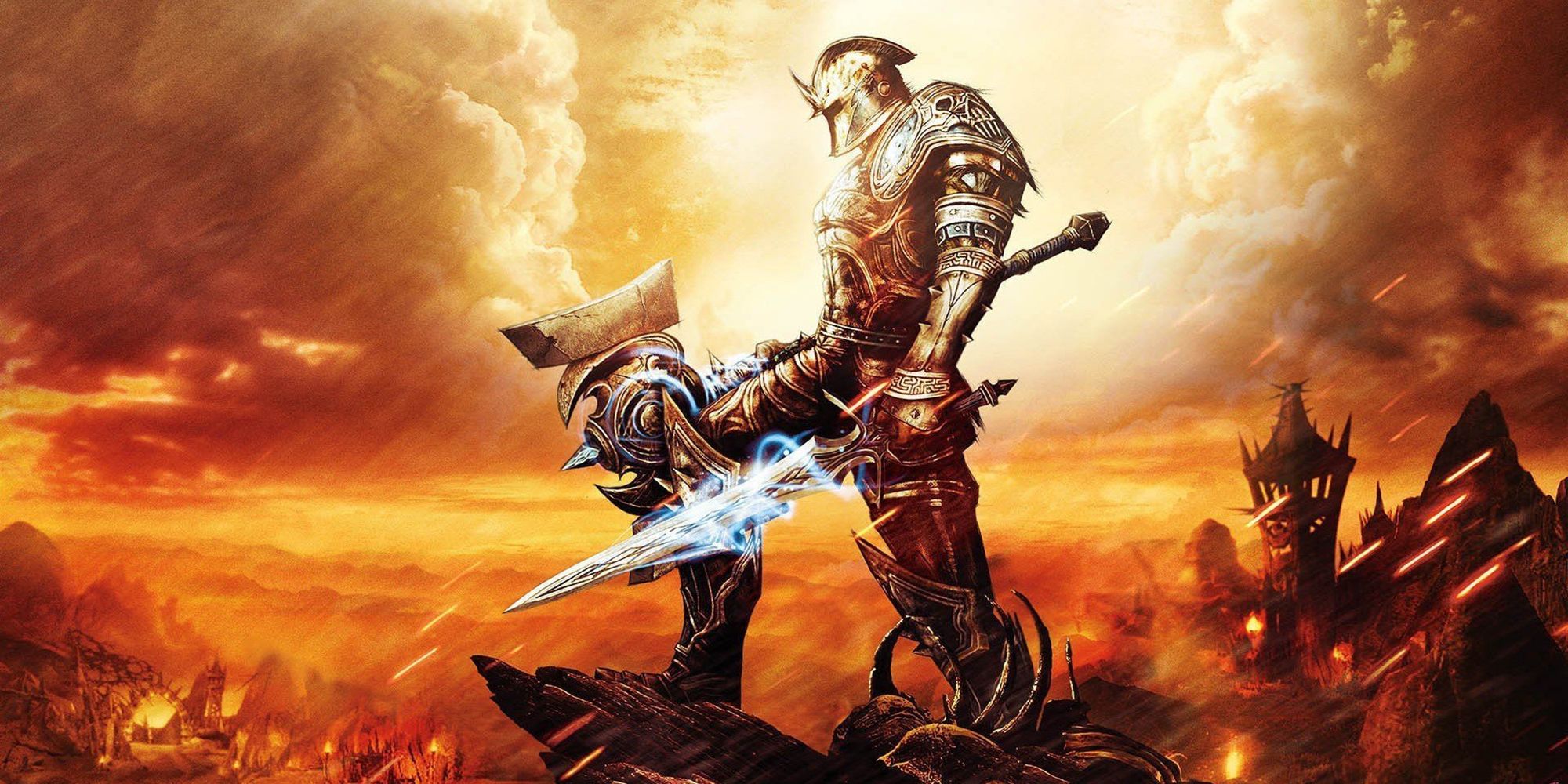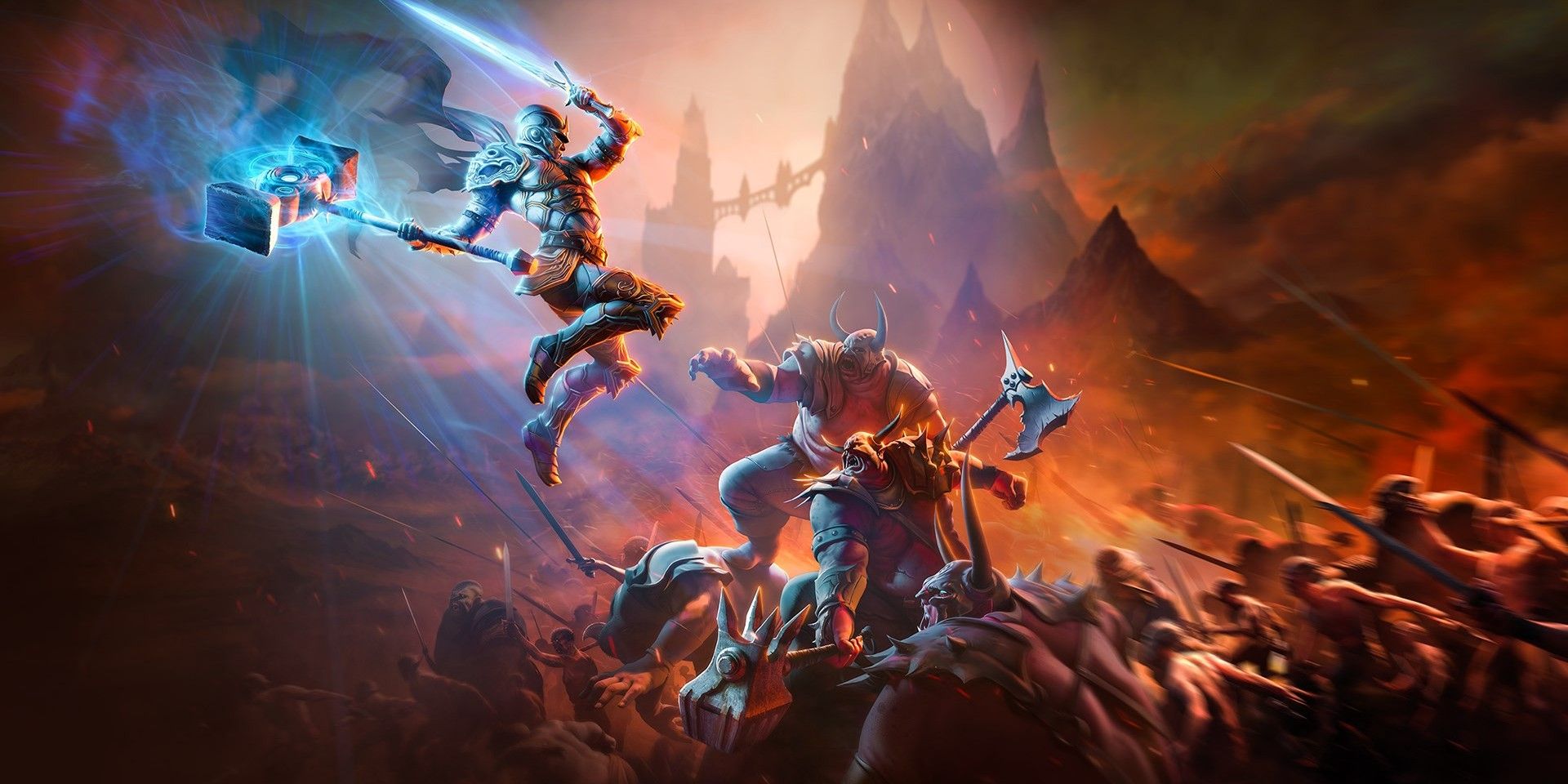It looks like Kingdoms of Amalur: Reckoning is finally getting the attention it deserves with the upcoming remaster of the RPG classic. While Kingdoms of Amalur: Reckoning is often considered one of the best hidden gems to come out of the seventh console generation, it also built up a reputation for having one of most bizarre developments in the history of video games. It's a miracle the game was even released.
The game's developer, 38 Studios, made a slew of poor business decisions that nearly made Kingdoms of Amalur: Reckoning dead on arrival.
38 Studios started as a dream of famed baseball pitcher Curt Schilling. Schilling wanted to start a company that could make RPGs similar to the ones he enjoyed playing in his spare time. He put together a team of creative minds including Spawn creator Todd McFarlane and famed novelist R.A. Salvatore to work on the studio's first IP. Schilling continued luring in industry heavyweights by funneling them tons of cash to work for his new company.
As soon as Schilling created his dream team of video game developers, writers and artists, 38 Studios began working on Copernicus. The game was an ambitious MMORPG that took place in the Amalur universe. 38 Studios found out it might have bitten off more than it could chew after developing the game for three years and making very little progress.
Schilling decided to purchase a budding young developer called Big Huge Games to aid in Copernicus' development. Since 38 Studios made very little progress with Copernicus, the company decided to merge it with a game Big Huge was making called Project Mercury. The studio also morphed its MMORPG into a single-player fantasy RPG for home consoles. The game eventually transformed into Kingdoms of Amalur: Reckoning.
Shortly after Kingdoms of Amalur: Reckoning finally formed into a promising, open-world RPG, the governor of Rhode Island, Don Carcieri, approached Schilling with a business opportunity. Carcieri promised to loan Schillling's novice studio $75 million if he agreed to move the company from Massachusetts to Rhode Island and create an additional 450 jobs in the next three years. Schilling had spent millions of his own money on Kingdoms of Amalur: Reckoning already, so he saw the loan as a saving grace for the project. Schilling agreed to Carcieri's offer and moved 38 Studios to Rhode Island.
Unfortunately, things started to look shaky for Schilling and his novice studio once Kingdoms of Amalur: Reckoning released in 2012. Schilling's excessive spending and poor business decisions came back to haunt him, because Kingdoms of Amalur: Reckoning would have to sell over 3 million units just for 38 Studios to break even.
The game did sell decently well, but failed to become the huge success 38 Studios and Rhode Island expected. This lead to 38 Studio's demise, since Schilling couldn't repay his debt to the state. He couldn't even afford to pay his staff, despite Kingdoms of Amalur: Reckoning selling over 1.2 million copies in its first 90 days.
The financial burden became too much for Schilling, who closed 38 Studios shortly after Kingdoms of Amalur: Reckoning's release. The company filed for bankruptcy in 2012 and everyone at Big Huge Games was fired as well. Kingdoms of Amalur: Reckoning's development was so financially devastating that Rhode Island launched a criminal investigation to look into 38 Studios and the game's development. The investigation went on for nearly half a decade before 38 Studios was cleared of any wrongdoing.
Kingdoms of Amalur: Reckoning is one of those games where its legacy overshadows the actual product. The game failed not because of its lackluster gameplay, but 38 Studio's mismanagement. Kingdoms of Amalur: Reckoning is a great RPG that had the misfortune of being developed by a novice game company led by an inexperienced founder. Hopefully the upcoming remaster will do Kingdom of Amalur: Reckoning justice and expose the underrated RPG to a whole new generation of fans.


